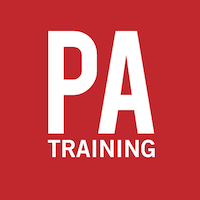
Course Overview
This comprehensive course will give you a much greater understanding of how to plan media and PR campaigns. It covers the principles of PR strategy, planning budgeting and measuring campaign effectiveness. Using a mix of practicals, discussion and presentations it will give you the tools you need to plan your PR effectively.
Who the course is for
Anyone who wants to bring some structure and rationale to their PR. Whether you work in marketing, PR or are looking to use PR for your organisation, acquiring the skills to analyse, plan and measure it will make all the difference.
Learning Objectives
- PR definitions and context
- The principles of PR strategy
- Strengths and weaknesses of different PR tools
- Identifying the audience and the channels to reach them
- The principles of formulating a strategy
- The four stages of PR planning
- Research tools and how to use them
- Planning and implementation – tips on making your campaign work hard
- Monitoring and evaluation
- Budgeting – how to make your campaign deliver value for money
Course Outline
PR definitions and context
- What is PR – common misconceptions and the reality
- How social has changed the PR landscape
- The problems of definition and securing buy-in for PR
The principles of PR strategy
- How PR strategy should work in an organisation
- The importance of feeding back evaluation
- The challenges of identifying areas that can deliver results
Strengths and weaknesses of different PR tools
- The PRs toolbox
- Media relations, lobbying, face-to-face, digital and quasi-marketing techniques analysed
- How to use the tools effectively
Identifying the audience and the channels to reach them
- Who is your audience?
- Who are you trying to reach?
- Which is most effective way to reach them?
The principles of formulating a strategy
- The principles of three-stage strategic planning.
- How strategic planning and PR planning work hand-in-hand
- What is the difference between strategy and planning?
The four stages of PR planning
- Why research and analysis are vital
- The rationale of mutual understanding between you and your audience
- Why creativity is important in PR planning
- How research and evaluation are tightly linked
Research tools and how to use them
- How to carry out a media analysis
- Free media resources to sharpen your focus
- Making use of available research in your organisation
- Keeping on top of the social media landscape
- How to present a PR plan
- The importance of clarity in defining your objectives
- Breaking up your PR plan into clear sections
- Breaking down the mechanics into manageable headings
Monitoring and evaluation
- The pros and cons of professional media monitoring
- How to evaluate your campaign
- Building evaluation costs into your planning
- How to measure financial value, messaging, tone, sentiment
- Advanced media evaluation techniques
Budgeting – how to make your campaign deliver value for money
- How much PR costs and why budget should be the starting point for PR planning
- Breaking down your campaigns into measurable elements
- Understanding the concept of time as a cost
Our partners, Press Association Training will be delivering this course on behalf on Journalism.co.uk.
Getting there
This course will be held at Press Association 292 Vauxhall Bridge Road London SW1V 1AEAbout Press Association
The Press Association (PA) is the national news agency for the UK and Ireland and a leading multimedia content provider across web, mobile, broadcast and print. For the last 147 years PA has been providing fast, accurate feeds of text, data, photos and video. Today the business is increasingly focused on the delivery of complete products for both digital and print clients.
The Press Association Training courses are specifically tailored to ensure they include the very latest developments in the rapidly changing world of the media.
All of PA's trainers are working journalists or PR professionals with the most up-to-date knowledge who always shape courses to the individual needs of those attending.









